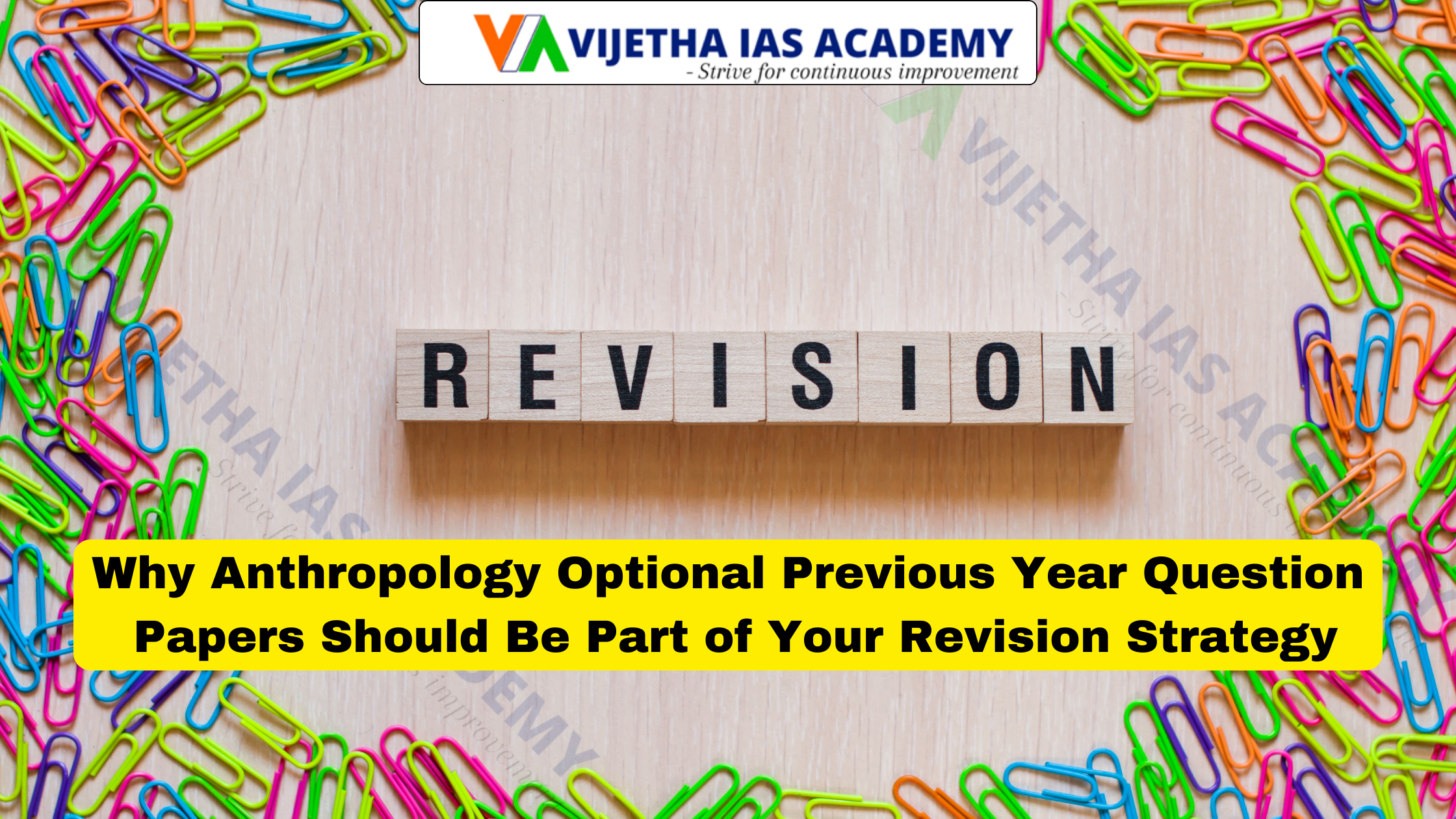
Why Anthropology Optional Previous Year Question Papers Should Be Part of Your Revision Strategy
The Union Public Service Commission (UPSC) Civil Services Examination (CSE) is a challenging process that demands a well-planned preparation strategy. For those opting for Anthropology optional as their optional subject, incorporating previous year question papers (PYQs) into your revision plan is a game-changer. Here's why:
1. Understand the UPSC Pattern and Trends
UPSC has a distinct style of framing questions. By analyzing PYQs, you can identify:
- Recurring themes: Topics like kinship, culture, or theories of evolution often repeat.
- Question types: Direct, analytical, or application-based.
- Weightage distribution: Sections like Physical Anthropology may have more questions in certain years.
This understanding allows you to align your preparation with the exam’s requirements.
2. Master the Art of Answer Writing
Answering questions effectively is crucial in mains. PYQs help you:
- Practice time management under exam-like conditions.
- Develop a structured approach to presenting your answers.
- Refine skills in using diagrams, flowcharts, and examples, which are critical for Anthropology.
3. Boost Conceptual Clarity
Reviewing PYQs forces you to revisit concepts multiple times. This deepens your understanding of topics and improves retention. For example, topics like human evolution or tribal issues become more comprehensible when tackled through real questions.
4. Identify High-Yield Topics
PYQs reveal areas with a higher probability of being asked again. Focusing on such high-yield topics, like carbon dating methods or functionalism, ensures efficient use of your study time.
5. Evaluate Your Preparedness
Attempting PYQs helps you gauge your:
- Current knowledge level.
- Ability to articulate anthropological concepts effectively.
- Readiness for handling diverse question formats.
6. Bridge the Gap in Self-Study
For those preparing without formal coaching, PYQs act as a guide to validate if your study direction aligns with UPSC's expectations.
7. Stay Motivated
Seeing your ability to solve past questions fosters confidence. It reassures you that you’re on the right path and improves exam-day performance.
How to Use Anthropology PYQs Effectively
- Segregate Papers: Divide them by topics like Physical Anthropology, Social Anthropology, or Tribal Studies.
- Analyze Solutions: Refer to expert solutions or join test series like those offered by Vijetha IAS Academy for detailed insights.
- Track Progress: Regularly revisit questions to monitor improvement.
- Integrate with Notes: Add frequently asked PYQs to your revision notes for quick reference.
Conclusion
Anthropology PYQs are indispensable for a thorough and strategic revision. Whether you're self-studying or under expert guidance like that of Kishore Sir at Vijetha IAS Academy, making PYQs an integral part of your study plan can significantly improve your preparation. Stay consistent, and you’ll find yourself better equipped to ace the Anthropology paper.
For expert guidance, test series, and resources tailored for Anthropology optional, check out Vijetha IAS Academy’s programs.
